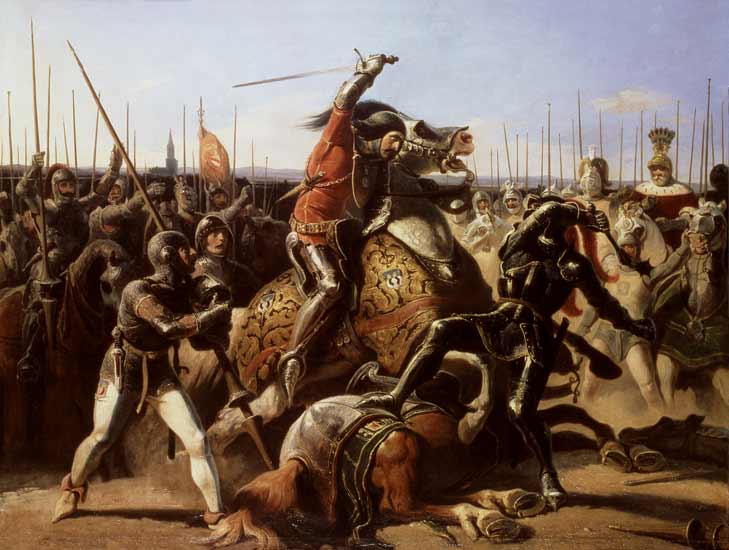
The Thirty Years War (1618-1648), like most, was obscenely messy. What's worse, like most horrendous conflicts of our day and years gone by, it was, quite frankly, religious, fought by antagonists perfectly confident that their enemies belonged to the army of Satan.The Thirty Years War wasn't among Christianity's finest hours.
Want to see for yourself? This excerpt from Cicely Wedgewood's history of that war may be all you wish to read.
At Calw the pastor saw a woman gnawing the raw flesh off a dead horse on which a hungry dog and some ravens were also feeding. . . .In Rhineland [city magistrates] watched the graveyards against marauders who sold the flesh of the newly buried for food. . . .Acorns, goats' skins, grass, were all cooked in Alsace; cats, dogs, and rats were sold in the market at Worms.People suffered. Political and religious hatred teamed up in a particularly rowdy fashion to create a war in which the Austrians and Swedes and just about anyone else looking for a fight on the continent took turns thrashing the very life out of the German people and countryside.
To those who lived through it, the steel wheels of that war must have seemed to grind on endlessly. Thousands deserted their farms and homes for protection in old walled-in European cities. Soon enough, there was no room. At Strassburg, Ms. Wedgwood says, the living shut their windows to death groans just outside the walls of their homes. In winter, people stepped over dead bodies all over the streets. Finally, when the city knew it could do no more, the magistrates simply threw out 35,000 refugees into the terror and death outside the the walls.
Spring came in long days of warm rains that kept the earth moist and rich for disease that flourished in the hot summer sun that followed. Plagues wound through the streets in gusts of warm wind., Outside the gates, law and order crumbled into chaos as men formed marauding, outlaw gangs that killed men, women, and children for food.
Sometime toward the end of the Thirty Years War, picture a man named Martin Rinkert, a servant of God, a preacher in his own hometown of Eilenburg, Saxony. In 1637, at the height of all the horror, Rinkert, the only clergyman left in the city, held funerals for up to fifty people per day. Even his wife died of the disease.
But sometime during those years--during the groaning persistence of war's evil--Martin Rinkert sat and wrote a magnificent, stately tribute thank you to God, the ruler of a world that must have seemed crumbling or burning all around.
Imagine. Thanksgiving in the middle of that unthinkable carnage.
"Now thank we all our God," he wrote and many of us will sing today. His nostrils may have been filled with the stench of war, but his soul seems to have been overflowing with confidence.
Eilenburg, Saxony, 1637. The Thirty Years War.
Thanksgiving.
Amazing.
__________________
If you've got four minutes, listen in.
No comments:
Post a Comment